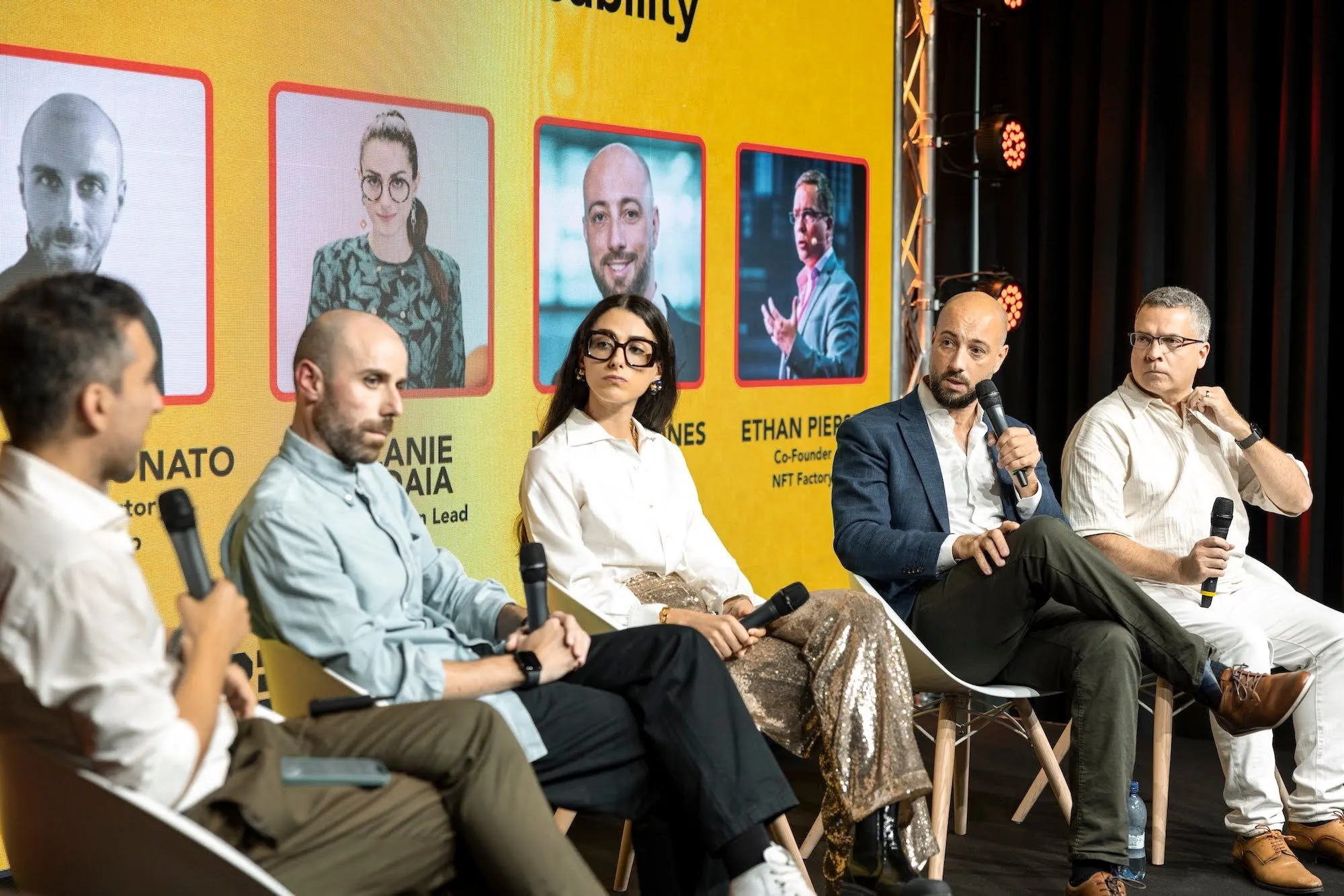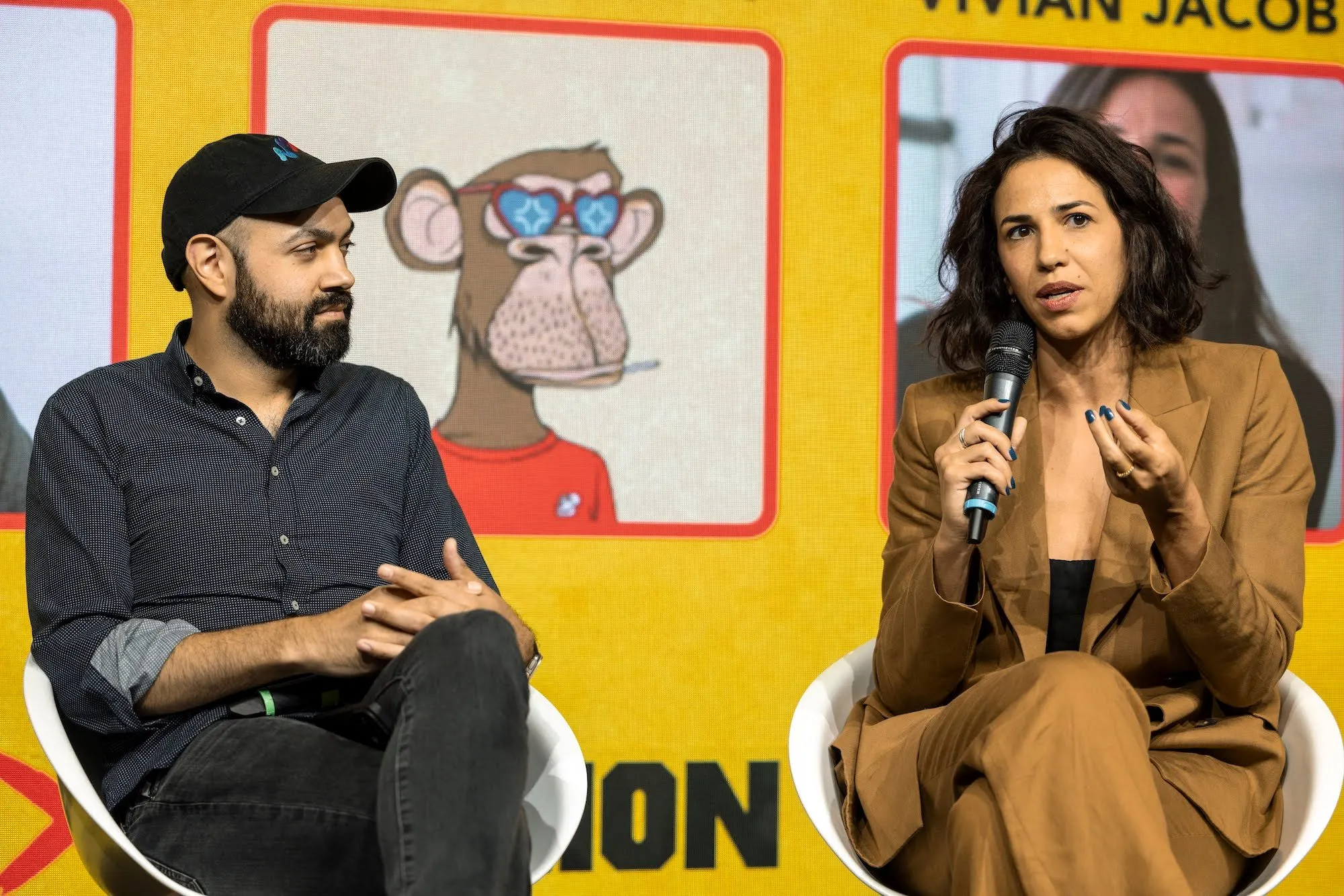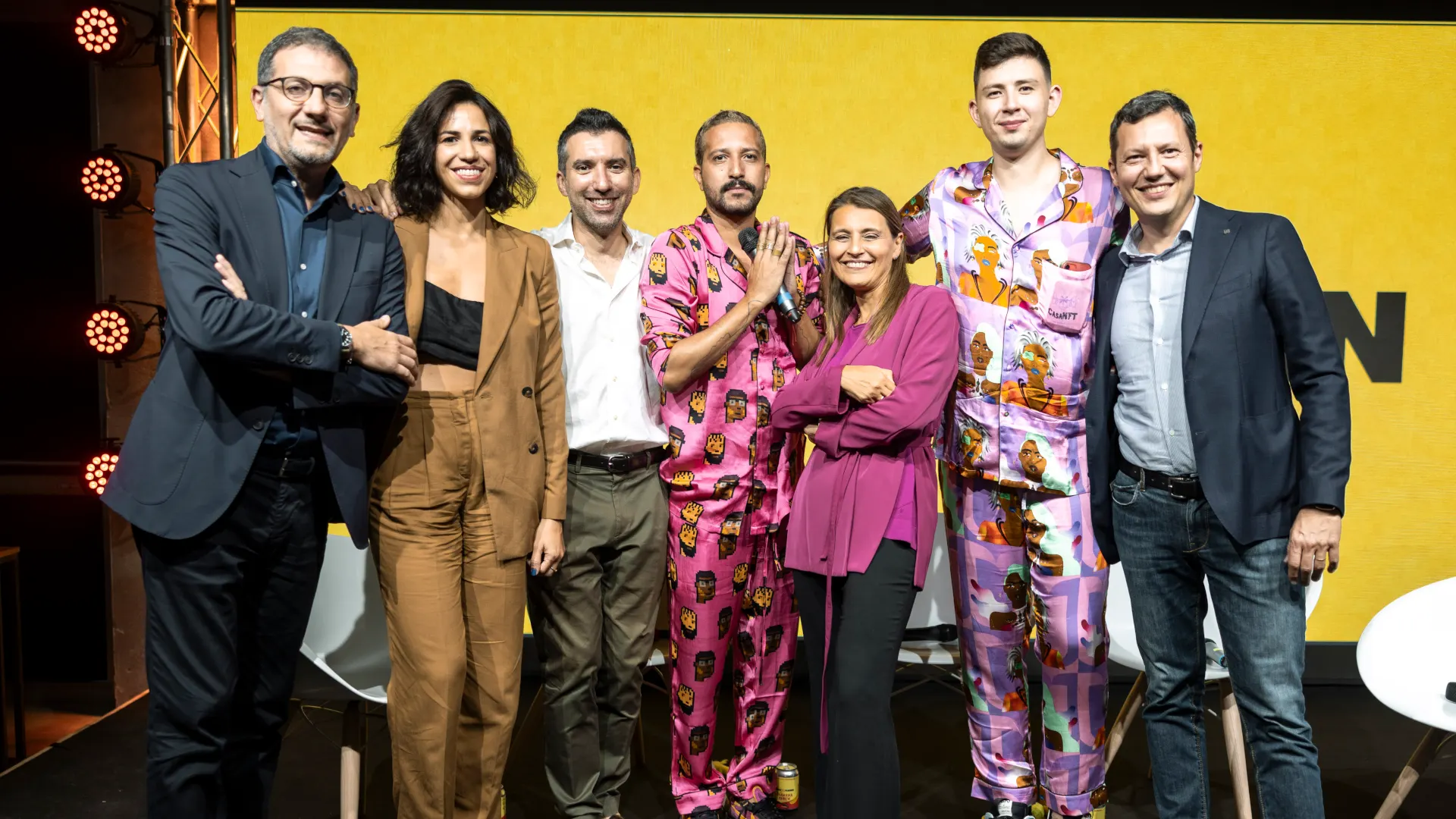The spring/summer 2024 edition of Milan Fashion Week was an amalgam of elevated luxury fashion presentations, opulent parties in palazzos and rooftops, and digital fashion events.
It kicked off with the “Web3 x Fashion” event, a brainchild of the European Web3 Organization, BananaCorp, and AKQA. Esteemed luxury fashion houses such as Prada, Dolce & Gabbana, Balenciaga, Moschino, Armani, Loro Piana, Valentino, Bally, Ray-Ban, and others participated, alongside prominent Web3 firms including Ledger, Tokenproof, Bored Ape Yacht Club creator Yuga Labs, and World of Women.
What immediately caught my attention was the absence of digital fashion projects. It appeared that this event opted to concentrate on the challenges of luxury brands concerning blockchain and other emerging technologies, rather than seeking solutions from the new wave of fashion creators.
"We do not speak your language and terminology," said Mario Didonato, Group Digital Director at Prada Group, during one of the panels.
The disconnect between crypto natives and traditional brands—and their customers—has been raised many times before. Based on the sentiment at the event, the communication gap isn’t anywhere near bridged. And the data supports such a discrepancy.
"There are 8 billion people on the planet. Only 100 million people have a [crypto] wallet or use the blockchain—around 1% of the population”, shared Ethan Pierse, co-founder of NFT Factory in Paris.
While some users have been in crypto for years, the majority of people still have no idea what it entails. No reputable brand with a solid financial plan would bet the house on it, due to the nascent and experimental stage of the technology. Startups are more open to risk and experimenting to find solutions to problems in fashion, while the titans approach cautiously.

"We will always be followers in adopting emerging tech since we want to ensure it is profitable,” affirmed Javis Macchi, global head of social media at eyewear giant Luxottica.
Nevertheless, companies recognize its potential value and are exploring how blockchain can deliver more value to clients and customers.
"Find problems that can be solved with blockchain," said Gianluigi Zarantonello, Valentino’s worldwide director of digital solutions.
Concepts like decentralized identifiers and verifiable credentials, supply chain improvements, and reducing the environmental footprint of fashion were highlighted as the most valuable solutions that can be implemented today through blockchain integrations.
Still, the event left a mixed sentiment. Some of the biggest fashion brands are venturing into Web3, and dedicated an entire day to a tech-focused event—but it appeared that even if there was a solution to make fashion 100% sustainable, it wouldn't be adopted unless it boosted their bottom line.

But elsewhere during Milan Fashion Week late last month, we saw massive fashion brands embrace Web3 technologies and the metaverse at large.
Diesel, for example, marked this spring/summer '24 show as the largest by attendance, with approximately 7,000 attendees—and the rain proved to be an unexpected boon for Diesel, creating the most viral social media content. The brand used NFTs as an access pass into the show, showing the benefits of cultivating a community of holders and rewarding them with real-world benefits.
Arguably, one of the most eagerly anticipated collections of Milan Fashion Week was Gucci's Ancora, thanks to their new creative director, Sabato De Sarno. Gucci also hosted a show across multiple metaverse platforms, including a Roblox space that saw over 250,000 visitors on the day of the show.
The conservative stance of some fashion brands towards blockchain use cases isn’t surprising, but you didn’t have to look too hard during Milan Fashion Week to find examples of giants that are eagerly experimenting and engaging their customers in new ways. A divide remains—but it’s shrinking further and further with each new technological embrace.

